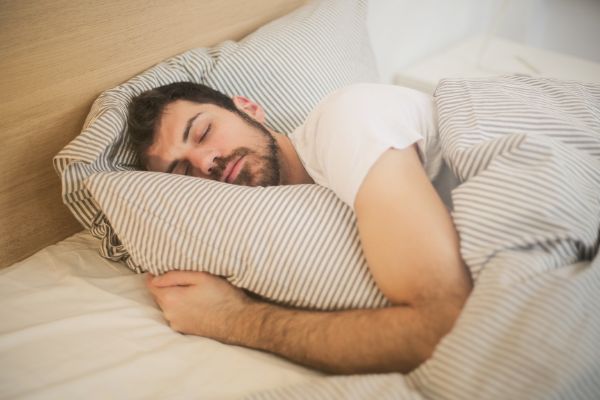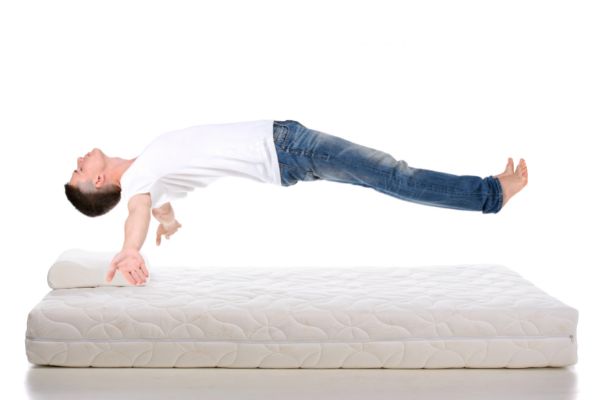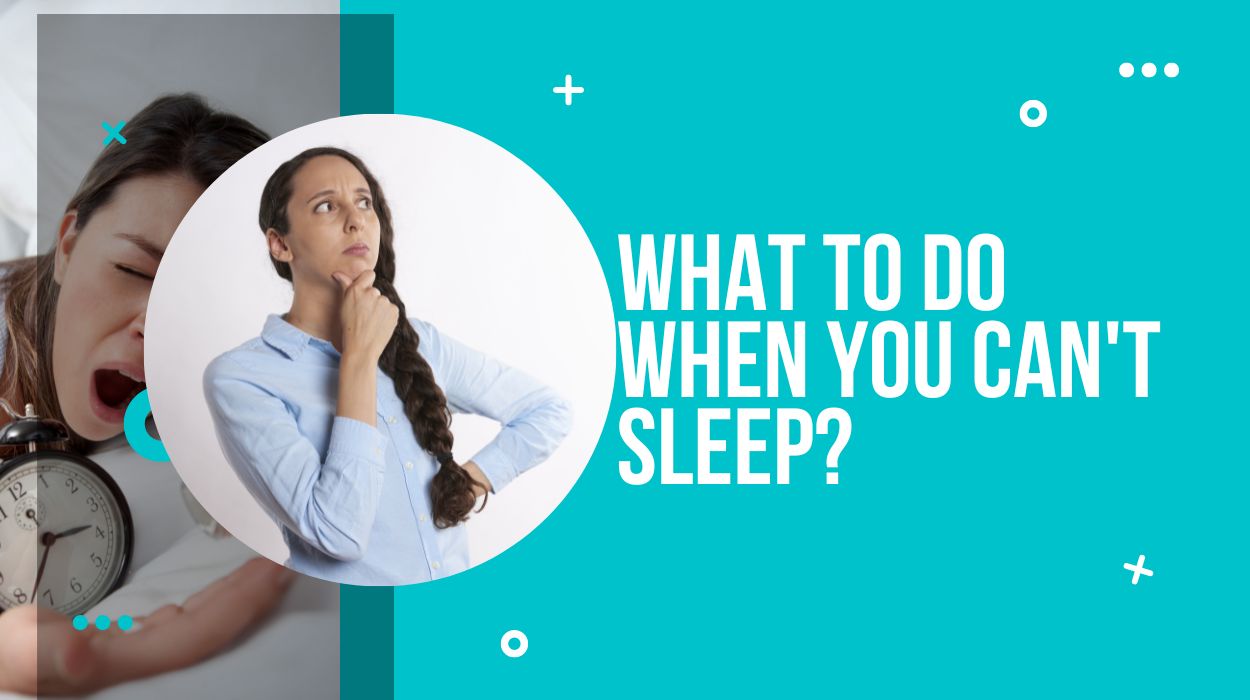If you’re struggling to fall asleep, you’re not alone. Up to 50 million people in the U.S. have a difficult time sleeping. It may have something to do with 35 percent of employed adults being sleep deprived.
Perhaps it’s because of stress, anxiety, depression, or any other problem that stands in your way of a good night’s sleep. This article will get to know the reasons behind the sleepless nights. We’ll also guide you on other things you can do to relax and get that much-needed sleep.
Reasons you can’t sleep:
When you can’t sleep, it’s frustrating. You go through your regular bedtime routine and then toss and turn. You get zero shut-eye and feel terrible the following day—you’re foggy and groggy and have no energy.
You may think you have insomnia, but there are many reasons other than lack of sleep that lead you to toss and turn at nighttime.
1. Light in the room:
Apart from the disruptive light emitted by your devices, light in part of your room can also be an issue. You know light can help us wake up in the morning. But do you also know that it can keep us awake at night?
The light released from a TV or other electronic gadget excites our brain and keeps us attentive; thus, your bedroom should preferably be dark.
2. Stress:

Many people have trouble sleeping in the way that their thoughts will not stop running at night. Some people run about their lives and what has happened throughout the day.
Others overthink about the future or worry that they won’t be able to sleep once they are in bed.
3. Room temperature:
Being comfortable is an essential part of sleeping well, and keeping the room temperature calm can help a lot.
It’s essential to understand how room temperature and sleep affect each other because if you’re experiencing hot or cold sleep, it can influence your sleep quality.
4. Nightmares:
You know that familiar feeling. The scary, anxiety-ridden dream you had last night keeps you up, shaking and drenched in sweat. You’re not sure how to describe it, but you can’t sleep.
5. Alcohol:
Alcohol is a sleep disruptor, not a sleep aid. As alcohol reduces the calming effect of GABA and induces depression in the central nervous system, your sleeping cycle is disrupted.
Fall asleep is impaired as alcohol may make you feel tired, but this only lasts temporarily. When you try to sleep, you will toss and turn due to insomnia.
6. Caffeine:

Caffeine is a stimulant. Caffeine keeps you up all night. If you have coffee late in the day, you could toss and turn because of it.
If you’re having difficulties sleeping, it might be due to the amount of coffee you consume, or it could be due to the amount of caffeine your body must metabolism.
7. Late-night exercises.
Exercise may help you sleep better, but you must know how much exercise is sufficient and when to schedule your workouts to reap the most significant advantages.
However, there is a consensus among scientists that intense physical activity shortly before bedtime can disturb your sleep. If you overstimulate your metabolism and pulse rate, you will experience discomfort and frequent awakenings.
What are the 4 main things needed to get a good night sleep?
Relaxation is a natural and vital state of mind that helps relieve stress and connect with yourself in more profound ways. It can also assist you to have a better night’s sleep! To help build your relaxation practices into your day to optimise the neuroscience of relaxation, here are crucial elements to keep in mind.
1. Calming atmosphere
Relaxation is a crucial part of a healthy life. It makes you feel good, but it also reduces your stress. One approach to do this is to surround yourself with a calming environment.
A calm environment can help take some stress off a person, while a loud and noisy environment can also be stressful. The room should be kept clean with no clutter. Music should be less fast-paced and calming and not feature loud, pounding beats.
A good smell in the air can also help lower stress levels. Breathing exercises, such as deeper breathing and proper posture, are good techniques.
2. Passive viewpoint
In the modern world, we tend to be distracted by many things. We are constantly in a state of distraction. No matter how focused or relaxed you are, it happens.
Your brain has a hard time focusing on one thing for a long time. And sometimes, your attention isn’t as sharp as you want it to be. It’s normal and healthy to have the occasional wandering thought. But if you’re stressed out, worried, and anxious, your mind tends to wander much more frequently.
A great way to relax and get back into the groove is by taking a break from your current task. You can do this by simply relaxing, taking a break, and returning to your work.
3. A relaxing pose

People who have trouble falling asleep should find a position where they can feel comfortable and let their bodies rest. People often consider lying in bed as the ideal position for relaxing and getting some rest.
4. A comfortable mattress

We all know that a good night’s rest is essential for our health. But how many of us know that among the easiest and most effective ways to relax is to sleep on a comfortable mattress?
This might seem like an over-simplification, but optimising your sleep environment is probably among the most valuable things to improve your stress levels and increase motivation, productivity, and vitality.
Tips for Falling Asleep Faster Before Bedtime
It’s essential to go to bed at a decent hour every night, but perhaps, more importantly, get your brain and body prepared to fall asleep quickly before you get into bed. Falling asleep faster before bedtime is an achievable goal. Here are several tips to aid you along the way:
- When you have a hard time falling asleep, you need to find a way to relax that works for you. Take time for reading, gentle stretching, and other calming activities.
- Eating large meals and drinking alcohol or caffeine too late will keep you awake. By sitting down to a small meal an hour before bed, you can have a good night’s rest.
- Make sure you’re comfortable when you lie down to bed; falling asleep faster before bedtime is about relaxing your eyes. It is advised to keep the lighting lower and make sure you are also dressed comfortably because it will help you relax a bit more.
- Another contraindicated activity is using electronic devices when lying down in bed because it increases the brain’s activity. This does not allow your mind to relax completely.
- To fall asleep faster, you need to make sure your room temperature is comfortable for sleeping. A cool room will ensure you fall asleep fast. Surprisingly, the best way to cool down an overly warm room is by opening up a window.
- When trying to fall asleep, your mind is racing, and you’re tossing and turning. Many essential oils can help you become calmer, not only in the day-to-day but also before bedtime. Use a relaxing fragrance to add calmness to your surroundings.
Frequently asked questions
Question 1:- How long should I drink coffee before going to bed?
Answer:- Caffeine has been linked to sleep issues and has been shown to impact energy levels by binding to receptors in the brain and body. Caffeine should be consumed at least 6 hrs before bedtime.
Question 2:- What is the Optimal Sleep Temperature?
Answer:- Sleeping with a too hot or cold temperature can be uncomfortable. Not just when it comes to sleeping but also when falling asleep. According to studies, the ideal sleeping temperature is around 60 and 67 ° F.
The Bottom Line
If you can’t sleep enough at night or have difficulty doing so and sense, your mood is affected during the day. It would be good to use the above tips.
Being tired and sleep-deprived has several adverse health effects, including obesity and cardiovascular disease. Hopefully, you’ll manage to get the much-needed rest and see the difference in how you feel during the day.


